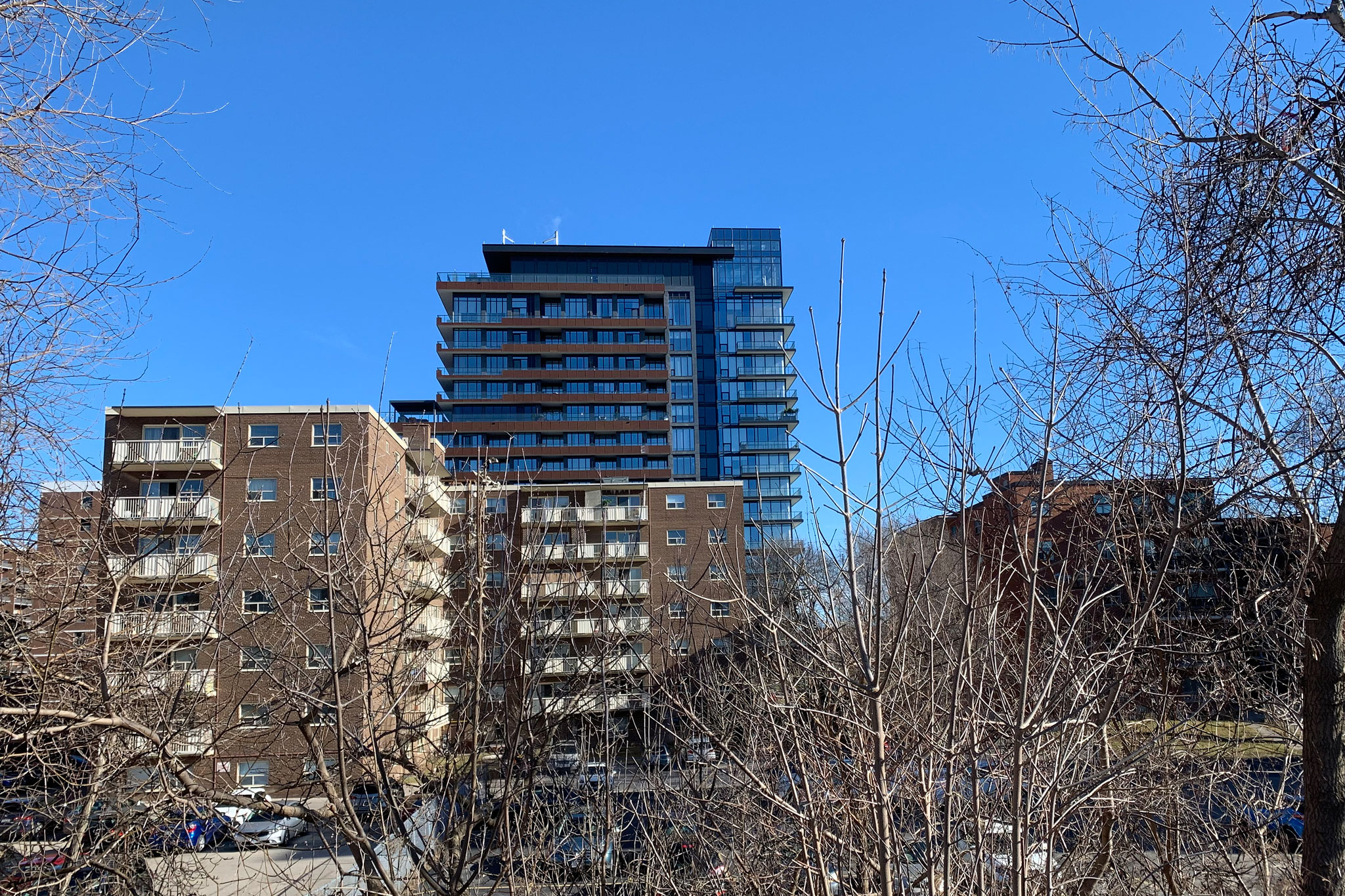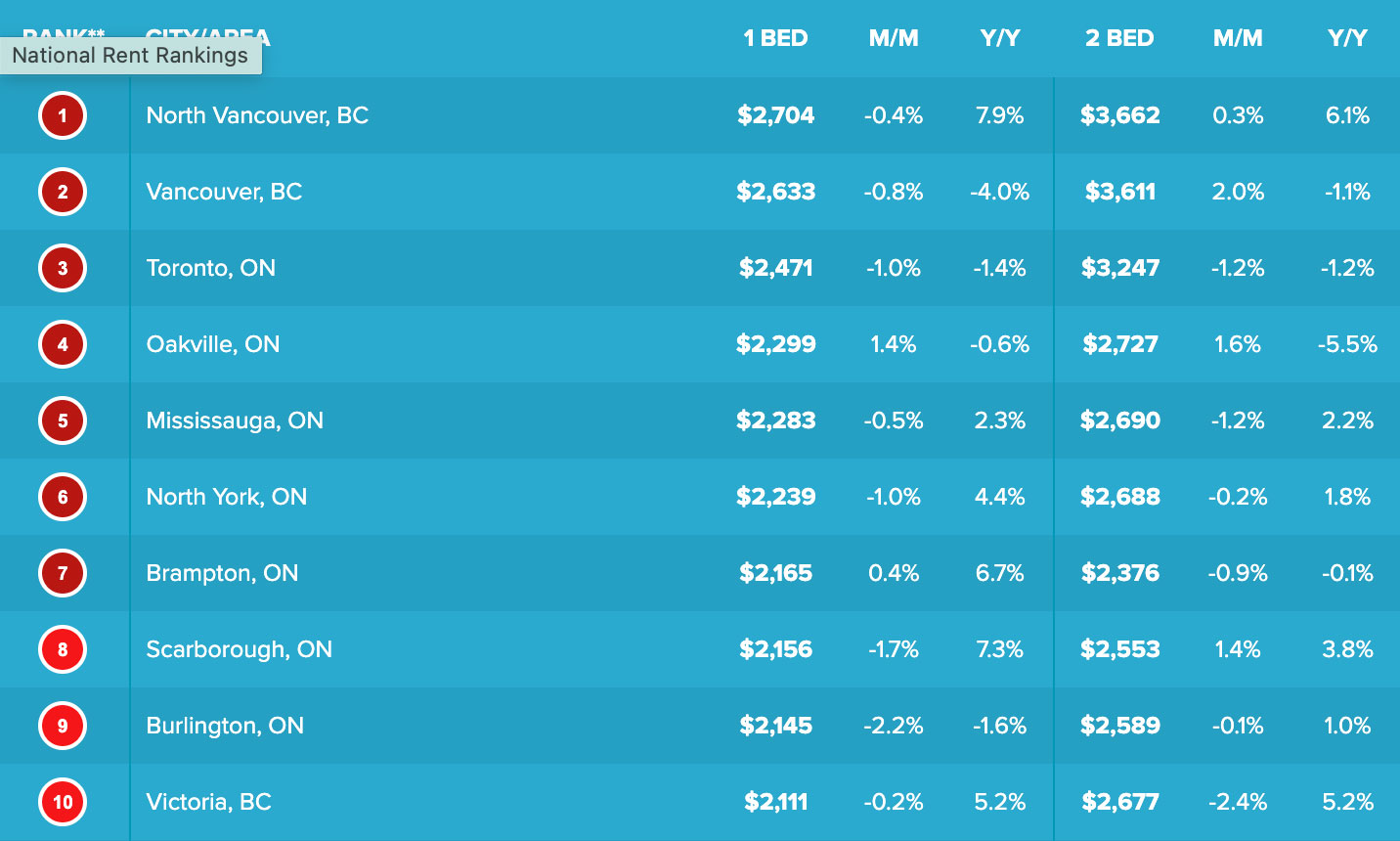Mississauga is now the third-most expensive place to rent in Ontario
Published April 12, 2024 at 12:22 pm

Mississauga is no longer the second-most expensive place to rent in Ontario but rents are still higher compared to this time last year.
Mississauga is the fifth most expensive city to rent out of 35 cities in Canada in the month of March. This is a drop from the fourth in February, according to the latest monthly National Rent Report from Rentals.ca and Urbanation.
The city is also dropped to third-most expensive in Ontario, as Oakville takes the second-highest rents, and Toronto remains in the number one spot in March.
The average one-bedroom apartment rent was $2,283 in March, which is a 0.5 per cent decrease month-over-month from $2,294 in February but a 2.3 per cent increase compared to this time last year.
Oakville’s monthly rents for a one-bedroom were slightly higher at $2,299. Toronto’s rents were $2,471 for a one-bedroom apartment in March.
The average two-bedroom rent was $2,690 in March in Mississauga, which is a 1.2 per cent decrease month-over-month, and a 2.2 per cent increase year-over-year, according to the report.
The report notes average asking rents for all property types in Canada increased 8.8 per cent in March, reaching $2,181.
This shows some moderation from the 10.5 per cent annual increase recorded in February, the report notes.
Moreover, rents saw a 0.6 per cent month-over-month decrease in March, which can be partly attributed to seasonal factors and a recent slowdown in rental demand in Canada’s most expensive markets, according to the report.
Since the onset of the pandemic in March 2020, average asking rents in Canada have risen by a total of 21 per cent, equivalent to an average annual increase of just over five per cent during the latest four-year period.
But it appears rent increases are slowing down.
“The March data showed early signs of rent increases easing at the national level, weighed down by recent declines in key markets in Vancouver and Toronto,” said Shaun Hildebrand, president of Urbanation.
“As population growth slows with caps on non-permanent residents and supply increases as rental completions continue to rise, rent growth should continue to moderate towards more sustainable levels.”

The National Rent Report charts and analyzes monthly, quarterly and annual rates and trends in the rental market on national, provincial, and municipal levels across all listings on the Rentals.ca Network for Canada. The data from the digital rental platform Rentfaster.ca is incorporated into this report.
The data includes single-detached homes, semi-detached homes, townhouses, condominium apartments, rental apartments and basement apartments (outlier listings are removed, as are single-room rentals.
See the full National Rent Report here.
INsauga's Editorial Standards and Policies